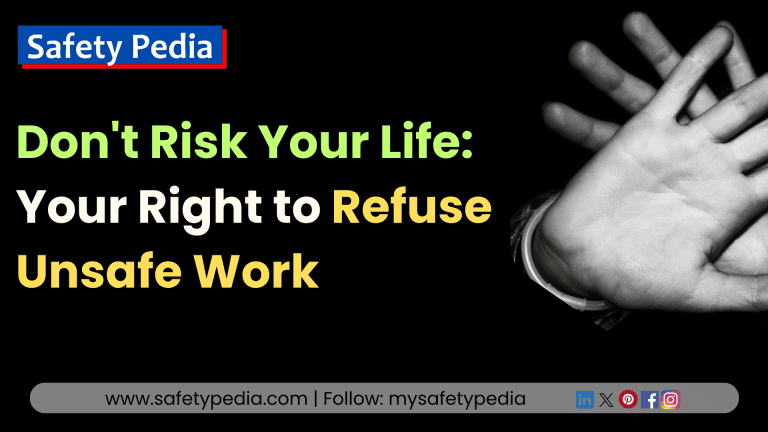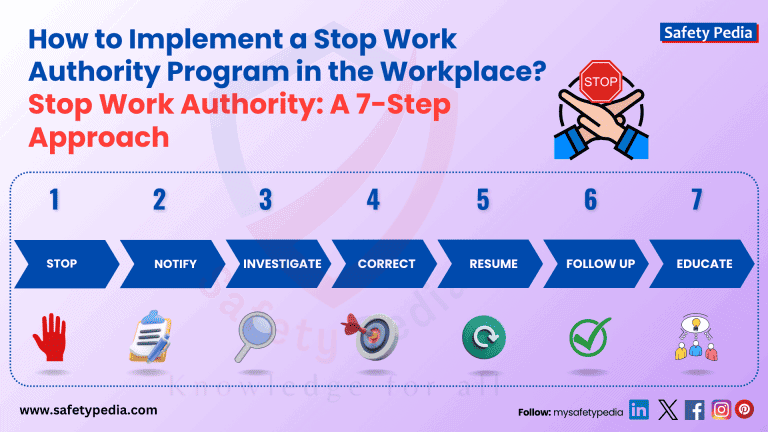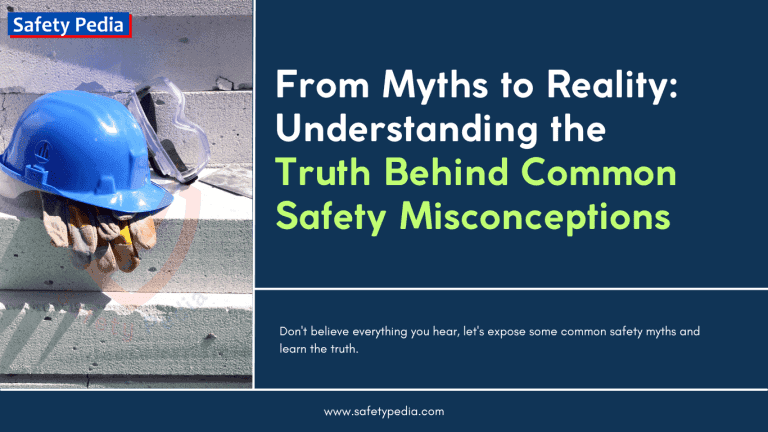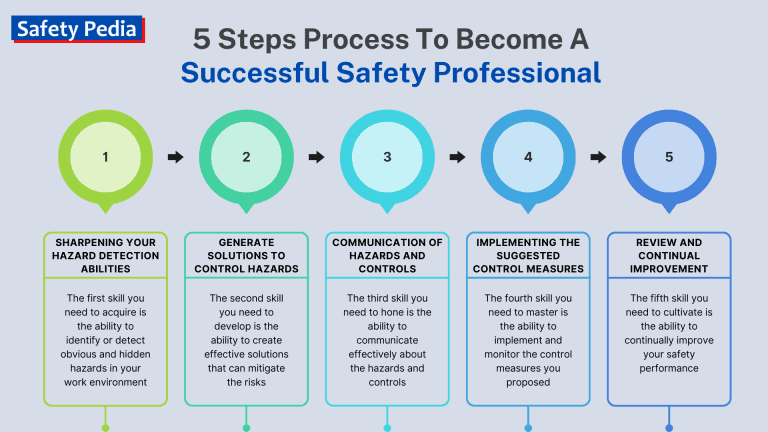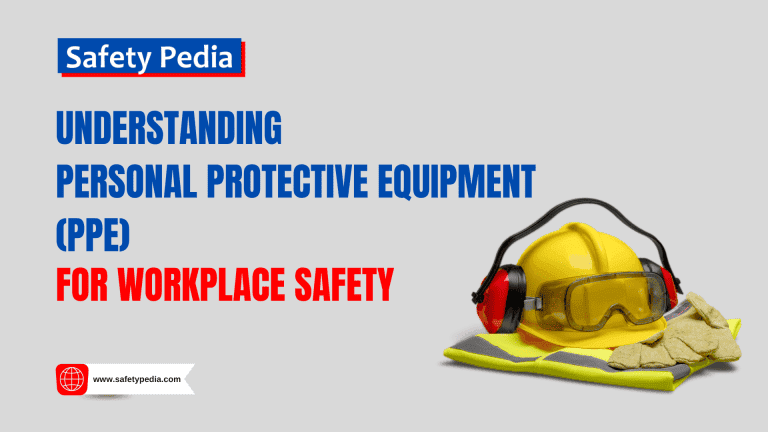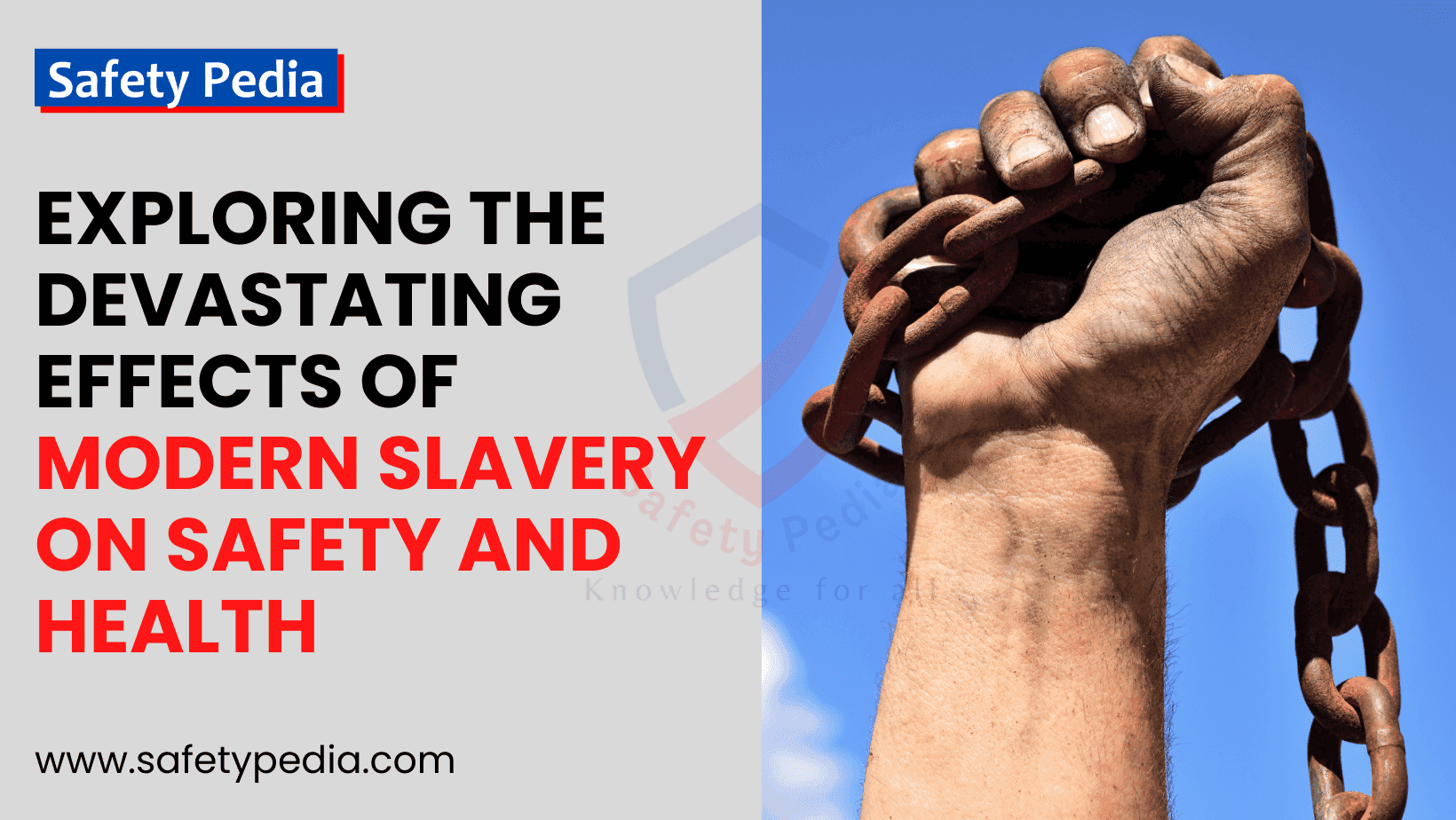
Introduction – Modern Slavery and Safety:
In the dark underbelly of the modern world, a hidden tragedy unfolds: the alarming prevalence of modern-day slavery. Despite efforts to eradicate this heinous crime, human trafficking continues to flourish, exploiting the most vulnerable members of society. In this article, we probe into the urgent need for increased focus on ensuring safety in the modern era of slavery.
The deceitful tactics employed by traffickers often go unnoticed, as they manipulate and coerce victims into a life of complete servitude. However, it is our collective responsibility to shine a light on this issue and work towards its eradication.
The complexities of modern slavery and the underlying factors that perpetuate its existence, we aim to identify practical solutions and strategies to break the chains that bind the victims. Awareness, advocacy, and collaboration among governments, organizations, and individuals are paramount in combating this global crisis.
Together, we must take a stand and demand justice for those whose voices have been silenced. Join us as we uncover the dark realities, share inspiring stories of survival, and explore innovative approaches to ensure safety and freedom for all those trapped in the grips of modern-day slavery.
Exploring the Devastating Effects of Modern Slavery on Safety and Health
Modern slavery is not only a grave violation of human rights but also has devastating effects on safety and health. Let us get into the dark world of modern-day slavery and shed light on the immense toll it takes on the well-being of victims.
From forced labor in factories to exploitative practices in the agricultural sector, modern slavery is a global problem that affects millions of people worldwide. This insidious practice not only traps individuals in a cycle of exploitation and abuse but also poses serious risks to their safety and health.
Workers subjected to modern slavery often endure inhumane working conditions, including long hours, lack of safety equipment, forced to perform risky jobs without providing Personal Protective Equipment, and exposure to hazardous substances. Their safety is compromised, with little to no protection from accidents and injuries. Furthermore, the physical and psychological abuse they endure can have long-lasting effects on their mental health, causing immense suffering.
Understanding the devastating effects of modern slavery on safety and health, we can be empowered to take action and support initiatives that combat this heinous crime. Together, let us shine a light on this pressing issue and strive for a world free from modern slavery.
Taking a Stand Against Modern Slavery through Safety and Health Measures
In today’s globalized world, the issue of modern slavery continues to be a pervasive violation of human rights. As individuals and nations, it is our responsibility to loudly and unequivocally condemn this abhorrent practice. One effective way to combat modern slavery is through the implementation of safety and health measures in industries and workplaces. By prioritizing the physical and mental well-being of workers, we can create an environment where exploitation becomes significantly more difficult.
Protecting human rights requires a comprehensive approach that addresses the root causes of modern slavery. Safety and health measures not only help prevent accidents and injuries but also empower workers and provide them with the dignity they deserve. By promoting fair working conditions, decent wages, and safe spaces, we can dismantle the structures that enable exploitation to thrive.
Furthermore, we will explore how safety and health measures play a pivotal role in safeguarding human rights and countering modern slavery. We will explore successful initiatives, the challenges that still exist, and the essential role that individuals, businesses, and governments play in driving meaningful change. Together, we have the power to eliminate modern slavery and build a world where every individual’s rights are protected.
Does Modern Slavery Still Exist
While modern slavery may seem like a relic of the past, the harsh reality is that it still exists in various forms around the world. Despite efforts to combat this crime, modern slavery persists due to complex factors such as poverty, inequality, and global supply chains.
One of the reasons modern slavery continues to exist is the demand for cheap labor and goods. Global supply chains often involve multiple tiers of suppliers, making it challenging to trace the origin of products and ensure ethical practices. This complexity allows exploitative practices to thrive, trapping vulnerable individuals in cycles of modern slavery.
Moreover, economic disparities and lack of opportunities contribute to the vulnerability of individuals to modern slavery. Poverty, unemployment, and lack of education create conditions where people are more susceptible to exploitation. Traffickers prey on these vulnerabilities, offering false promises of employment and a better life, only to subject their victims to modern slavery.
The interconnectedness of our global economy means that modern slavery is not confined to specific regions or industries. It is a pervasive issue that requires a coordinated and holistic approach to address effectively.
Acknowledging that modern slavery still exists, we can confront this issue head-on and work towards a future where every individual is free from exploitation. Through collective action and a commitment to ethical practices, we can create a world where modern slavery is eradicated, and safety and health are prioritized.
Different forms of modern slavery
Modern slavery takes various horrific forms, each characterized by different methods of control and exploitation. Here are some of the most common:
- Forced Labor: People are forced to work through coercion, threats, violence, or debt bondage. This can be in factories, farms, construction sites, hospitals, or even private homes.
- Bonded Labor or Debt Bondage: People are forced to work to pay off a debt, often one that is impossible to repay. This can keep them in a cycle of slavery for generations.
- Human Trafficking: This involves the movement of people by force, fraud, or coercion for the purpose of exploitation. This can include forced labor, sexual exploitation, or organ harvesting.
- Domestic Servitude: People are forced to work in private homes as domestic workers, cleaners, or nannies. They may be confined to the home and subjected to long hours, low pay, or even violence.
- Sex Trafficking: People are forced into prostitution or the sex trade through force, fraud, or coercion. This may involve adults and children.
- Forced Marriage: People are forced to marry against their will, often for financial gain or to settle a debt. This can be especially harmful to girls and young women.
- Child Labor: Children are forced to work in dangerous or exploitative conditions. This can deprive them of their education and childhood.
- Descent-Based Slavery: People are enslaved based on their caste or ethnicity. This can be passed down through generations.
- Working in unsafe conditions
- Physical and Phschylogical Abuse
It is essential to understand these different forms of modern slavery in order to effectively combat this grave violation of human rights. By recognizing the signs and patterns of exploitation, we can take proactive measures to intervene and support the victims.
Types of Modern Slavery and Their Effects on Safety and Health
Modern slavery takes various forms and affects individuals in different industries and sectors. Understanding these types of modern slavery is essential for identifying victims and addressing the specific safety and health risks they face.
Forced labor is one of the most prevalent forms of modern slavery. Victims are coerced or deceived into working, often in hazardous conditions and with little to no pay. They may be subjected to physical and psychological abuse, putting their safety and well-being at risk. Industries such as agriculture, construction, and manufacturing are particularly prone to forced labor practices.
Human trafficking is another form of modern slavery that involves the recruitment, transportation, and exploitation of individuals through force, fraud, or coercion. Victims of human trafficking are often subjected to various forms of abuse, including forced labor, sexual exploitation, and organ trafficking. The physical and psychological trauma endured by trafficked individuals has severe implications for their safety and health.
Debt bondage is a form of modern slavery where individuals are trapped in a cycle of servitude due to debts they cannot repay. They may work long hours under harsh conditions, with their wages often insufficient to cover their debts. This form of exploitation compromises their safety and health, as they are vulnerable to accidents, injuries, and physical abuse.
Child labor is a particularly concerning aspect of modern slavery. Children forced into labor often work in hazardous conditions and are denied their right to education and a safe childhood. Their physical and mental well-being are greatly affected, posing long-term risks to their safety and health.
Each form of modern slavery imposes unique risks on the safety and health of its victims. By understanding these risks, we can tailor our efforts to address the specific needs of individuals trapped in these exploitative situations.
Recognizing the Signs of Modern Slavery in the Workplace
Recognizing the signs of modern slavery in the workplace is crucial for identifying victims and intervening to protect their safety and health. While the indicators may vary depending on the specific context, there are common signs that businesses and individuals can look out for. Here is a comprehensive list of indicators that may suggest the presence of modern slavery:
- Restricted freedom of movement such as closely monitored or controlled by their employers, limiting their ability to leave the premises or communicate with others freely. This control extends to their identification documents, which may be confiscated, further trapping them in exploitative situations.
- Evidence of poor working conditions such as the presence of excessive working hours and poor working conditions. Workers subjected to modern slavery often endure long hours of labor without adequate breaks or rest periods.
- The presence of underage workers (child labor) in the supply chain, often in violation of local and international laws.
- Unsafe environments such as lacking protective equipment and proper sanitation facilities. These conditions not only jeopardize their safety but also have detrimental effects on their overall health.
- Evidence of poor living conditions such as overcrowded accommodations, often at the place of work, with workers being picked up or dropped off at the same time.
- Lack of personal freedom such as limited freedom of movement, no control over personal identification documents, and dependency on others.
- Control and intimidation like one person speaking for a group, avoidance of eye contact or conversation, and fear of authorities.
- Financial exploitation such as withholding of wages, excessive hours with few or no breaks, late disbursement of salaries, overtime deductions, and deductions for accommodation or tools.
- Physical and mental health concerns such as untreated injuries, signs of psychological trauma, malnutrition, or poor dental conditions.
- Appearance and behavior where individuals appear malnourished, unkempt, anxious, or show signs of physical abuse.
- Signs of coercion such as evidence of threats, physical violence, or being kept in debt bondage with unreasonable deductions or interest added.
- Restricted interaction with the community, isolation from family and friends, and confinement to the workplace or living quarters.
By being vigilant and educated about the signs of modern slavery, individuals and businesses can play a crucial role in identifying and assisting victims. Early intervention can help ensure their safety and well-being.
It’s important for employers and coworkers to be vigilant and report any suspicions of modern slavery to the appropriate authorities. Training and awareness programs can also help in recognizing and preventing modern slavery in the workplace. For more detailed information and guidance, you can refer to resources provided by organizations such as Hope for Justice and Anti-Slavery International.
The impact of modern slavery on mental health
Modern slavery is a grave human rights violation that persists in various forms around the world, from forced labor and human trafficking to debt bondage and child marriage. Its effects are not only physical but also deeply psychological, leaving scars on the mental health of survivors that can last a lifetime.
The mental health impact of modern slavery is profound and multifaceted. Survivors often endure extreme trauma, including physical and sexual abuse, which can lead to a range of mental health issues such as depression, anxiety, and post-traumatic stress disorder (PTSD). The psychological toll of living in a state of constant fear and subjugation can disrupt a person’s sense of safety and self-worth, leading to long-term emotional distress.
Moreover, the legacy of slavery has intergenerational effects on mental health. Research has shown that the descendants of enslaved individuals may carry the psychological burden of their ancestors’ suffering, manifesting as generational trauma. This can affect their mental health and well-being, influencing their interactions with the world and their access to mental health services.
The mental health needs of survivors of modern slavery are complex and require specialized care. Unfortunately, there is often a lack of adequate mental health support for this population. Survivors may face barriers to accessing care, including stigma, discrimination, and a lack of culturally competent services. There is an urgent need for mental health professionals to be trained in recognizing and treating the unique challenges faced by survivors of modern slavery.
Addressing the mental health impact of modern slavery is crucial for the recovery and rehabilitation of survivors. It is essential to provide comprehensive support that includes psychological counseling, social integration, and legal assistance. Mental health interventions should be survivor-centered, trauma-informed, and culturally sensitive to effectively address the complex needs of this vulnerable population.
As we continue to fight against modern slavery, it is imperative to recognize and address the mental health repercussions that survivors face. By doing so, we can help them rebuild their lives with dignity and hope for a better future. The path to recovery is challenging, but with the right support and resources, healing is possible. It is a collective responsibility to ensure that survivors of modern slavery receive the care and attention they deserve to overcome the shadows of their past and move forward with resilience and strength.
The impact of modern slavery on individuals and offspring
The impact of modern slavery extends far beyond the immediate victims. It affects families, communities, and entire societies. Individuals who are subjected to slavery face severe physical and psychological trauma, resulting in long-lasting emotional scars. The loss of freedom, dignity, and control over one’s life can leave deep wounds that may never fully heal.
Moreover, the social and economic consequences of modern slavery are immense. Slavery fuels inequality and perpetuates poverty. It hinders economic development by distorting labor markets and driving down wages. The profits generated by the exploitation of slaves enrich the perpetrators while depriving societies of valuable resources that could be invested in education, healthcare, and infrastructure.
Despite the abolition of slavery centuries ago, its modern forms affect millions of individuals and their offspring, leaving deep and enduring scars.
For offspring, the effects can be equally devastating. Children born into or as a result of modern slavery face significant challenges, including limited access to education, healthcare, and other basic rights. They may also inherit the trauma experienced by their parents, perpetuating a cycle of suffering and inequality.
The legacy of slavery, even long after its official abolition, continues to influence the lives of descendants. For instance, in the United States, the legacy of slavery is believed to still affect the position of black people in society, with a majority of Americans acknowledging its ongoing impact.
The fight against modern slavery is not only a matter of human rights but also a crucial step towards achieving social justice and equality for all. As a global community, it is our collective responsibility to ensure that future generations are free from the shackles of this oppressive practice.
For more detailed information and to support the cause, consider visiting the websites of organizations like the International Labour Organization and the ECLT Foundation, which work tirelessly to combat modern slavery and its effects.
International laws and conventions against modern slavery
To effectively combat modern slavery, it is essential to have a robust legal framework in place. International laws and conventions play a critical role in establishing universal standards and promoting accountability. The United Nations’ Universal Declaration of Human Rights, International Labour Organization’s Forced Labour Convention, and the Palermo Protocol are just a few examples of the instruments aimed at eradicating modern slavery.
These laws and conventions not only define modern slavery but also outline the responsibilities of governments, businesses, and individuals in preventing and addressing it. They emphasize the importance of safety and health measures as a means to protect workers from exploitation and ensure their fundamental rights are upheld. By ratifying and implementing these international agreements, countries commit to taking concrete actions to combat modern slavery.
Government and international efforts to combat modern slavery
Governments and international organizations have recognized the gravity of modern slavery and have taken steps to address this issue. The United Nations has declared combating slavery as one of its Sustainable Development Goals (SDGs), aiming to end slavery in all its forms by 2030.
Many countries have enacted legislation and established specialized law enforcement units to fight against modern slavery. They have implemented measures to identify and prosecute traffickers, as well as protect and support victims. However, there is still much work to be done, as the complex nature of modern slavery requires a comprehensive and multifaceted approach.
International cooperation is crucial in the fight against modern slavery. Governments, non-governmental organizations (NGOs), and civil society must work together to share information, expertise, and resources. Joint efforts can lead to increased effectiveness in prevention, detection, and prosecution of traffickers, as well as improved support for victims.
Furthermore, governments should prioritize the implementation and enforcement of labor and immigration laws that protect vulnerable workers. They should also invest in programs that address the root causes of modern slavery, such as poverty, inequality, and lack of education.
By working together at national and international levels, we can create a united front against modern slavery and ensure that perpetrators are brought to justice while victims receive the support and assistance they desperately need.
Collaboration and partnerships in the fight against modern slavery
Effectively combating modern slavery requires collaboration and partnerships across sectors. Governments, businesses, civil society organizations, and individuals must come together to share resources, expertise, and best practices. By building strong alliances, we can amplify our impact and drive meaningful change.
One example of successful collaboration is the Stronger Together initiative, a multi-stakeholder program focused on tackling modern slavery in supply chains. This initiative brings together businesses, NGOs, and trade unions to provide training, resources, and guidance to organizations seeking to address modern slavery. By pooling their knowledge and expertise, participants can collectively work towards eradicating exploitation.
Partnerships between governments and businesses are also crucial in addressing modern slavery. Governments can enact legislation, establish monitoring mechanisms, and provide support to businesses in their efforts to combat modern slavery. By working hand in hand, governments and businesses can create an enabling environment that prioritizes safety, health, and human rights.
The role of businesses in eradicating modern slavery
Businesses have a significant role to play in combating modern slavery. As consumers, we have the power to influence corporate practices by making informed choices and supporting companies that uphold ethical standards. By demanding transparency and accountability from businesses, we can drive positive change and discourage the exploitation of vulnerable workers.
Businesses should conduct thorough due diligence to ensure that their supply chains are free from forced labor and other forms of exploitation. They should implement robust monitoring and auditing systems to identify and address any potential risks. By engaging with suppliers, workers, and relevant stakeholders, businesses can foster a culture of respect for human rights throughout their operations.
- Businesses have a crucial role in combating modern slavery, which includes forced labor, bonded labor, and child labor, affecting millions globally.
- Implementing best practices in supply chain management is essential for businesses to prevent modern slavery. This includes developing close relationships with suppliers to understand the root causes of slavery and enforcing standards through whistleblowing practices.
- Transparency in business operations and supply chains can significantly contribute to the eradication of modern slavery. Companies can use their influence to ensure that workers’ rights and freedoms are respected throughout their supply chains.
- Consumer awareness and action are also vital. While consumers can help by reporting suspected instances of exploitation and boycotting products known to be produced by slave labor, the responsibility also lies with businesses to provide transparent information.
- Legislation, such as the UK’s Modern Slavery Act, places some responsibility on consumers, but it also underscores the importance of corporate accountability in addressing the systemic issues that contribute to modern slavery.
- Businesses can demonstrate leadership by adopting social responsibility strategies that tackle modern slavery and by influencing company responses through consumer and regulatory pressures.
- The Global Business Initiative on Human Rights suggests that significant progress has been made by businesses taking action to address the complex challenges underlying modern slavery.
Furthermore, businesses should collaborate with governments, NGOs, and other stakeholders to develop industry-wide standards and best practices. By sharing knowledge and resources, they can collectively raise the bar and create a level playing field where unethical practices are not tolerated.
Empowering workers and providing them with fair wages, safe working conditions, and access to grievance mechanisms is essential in preventing modern slavery within business operations. By prioritizing the well-being of their employees, businesses can set an example and inspire others to follow suit.
Steps to identify modern slavery within the supply chains
Businesses can take several steps to identify modern slavery within their supply chains:
- Conduct thorough risk assessments of supply chains to pinpoint high-risk areas, considering factors such as geographical location, industry sector, and the use of labor brokers.
- Implement robust due diligence processes, including regular audits and inspections of suppliers and subcontractors to ensure compliance with labor laws and ethical standards.
- Develop clear and enforceable supplier contracts with clauses specifically addressing labor practices and the prohibition of modern slavery.
- Provide training for employees and management on recognizing signs of modern slavery and understanding the legal and ethical implications.
- Establish a whistleblower policy and anonymous reporting mechanisms for employees and external stakeholders to report suspected instances of modern slavery.
- Engage with local communities and workers’ organizations to gather insights and reports on working conditions and potential abuses.
- Utilize technology and data analytics to monitor supply chains and flag potential risks or anomalies indicative of modern slavery practices.
- Collaborate with NGOs, industry groups, and other businesses to share best practices and develop industry-wide standards to combat modern slavery.
Identifying and reporting instances of modern slavery
Identifying and reporting instances of modern slavery is crucial in the fight against this crime. However, recognizing the signs of exploitation can be challenging, as victims are often hidden from public view. It is important to be vigilant and informed, as anyone can be a potential victim or witness.
Some common indicators of modern slavery include restricted freedom of movement, confiscation of identification documents (passports, residence permits, etc.), physical or verbal abuse, and working excessively long hours for little or no pay. Victims may show signs of physical or psychological trauma, such as malnutrition, depression, anxiety, or fearfulness.
Personal Experiences
A colleague of mine shared a concerning experience with me. He was compelled to work at a remote location against his will. With no other options available, he complied. After two days, his manager requested his residence permit for some necessary details. Trustingly, he handed it over. However, once in possession of the permit, the manager chose to withhold it, stating it would be returned only upon the assignment of a new job. This action left my colleague feeling powerless and restricted, as if his freedom had been significantly curtailed.
In another instance, I observed a situation where senior staff members would intermittently seize the mobile phones of workers. On one occasion, a colleague, along with several others, was using his phone when he was singled out and his device was taken away for breaking the rules. The phone was withheld for a period of three days, after which it was returned to him only after he had written a forced apology and acknowledged his error.
If you suspect someone is a victim of modern slavery, it is important to report your concerns to the relevant authorities. In many countries, there are helplines and hotlines dedicated to receiving reports of modern slavery. These channels ensure that the information reaches the appropriate agencies, who can then take action to investigate and assist the victims.
Remember, reporting suspicions or concerns does not require definitive proof. It is better to err on the side of caution and let the authorities assess the situation. Your report could potentially save someone from a life of enslavement and exploitation.
Supporting victims of modern slavery
Supporting victims of modern slavery is a crucial aspect of ensuring their safety and recovery. It is essential to provide them with immediate assistance, including shelter, medical care, and counseling. Organizations specializing in victim support play a vital role in this process, offering a range of services tailored to the specific needs of survivors.
Reintegration into society can be a challenging journey for victims of modern slavery. They often face multiple barriers, including stigma, language barriers, and lack of education or job skills. It is important to provide them with long-term support, such as vocational training, education, and legal assistance, to help them rebuild their lives and regain their independence.
Collaboration between governments, NGOs, and the private sector is essential in providing comprehensive support to victims. By pooling resources and expertise, they can ensure that survivors receive the necessary services and support to overcome the physical, emotional, and psychological trauma inflicted upon them.

Promoting ethical consumerism to combat modern slavery
One powerful way to combat modern slavery is through ethical consumerism. By making conscious choices about the products and services we consume, we can send a strong message to businesses that exploitative practices are not acceptable.
When shopping, look for certifications and labels that indicate ethical sourcing and fair trade practices. Support companies that have transparent supply chains and publicly commit to combating modern slavery. By supporting these businesses, we create a demand for ethically produced goods and services, encouraging others to follow suit.
In addition to individual actions, collective efforts can make a significant impact. Join campaigns and initiatives that raise awareness about modern slavery and advocate for change. Use social media platforms to amplify the voices of victims and survivors, spreading the message far and wide.
Educate yourself and others about the products and industries that are particularly susceptible to modern slavery, such as the fashion industry, agriculture, and electronics. By staying informed, you can make informed choices and contribute to the eradication of this heinous crime.
Implementing safety and health measures in supply chains to prevent modern slavery
Supply chains span across borders, making them vulnerable to modern slavery. To combat this issue effectively, it is crucial to implement safety and health measures throughout the entire supply chain. Companies must take a proactive approach to identify risks, engage with suppliers, and ensure compliance with international standards and local laws.
One way to achieve this is through supply chain auditing and certification programs. These initiatives enable companies to assess their suppliers’ practices, identify areas of concern, and implement corrective actions. By collaborating with independent auditors or third-party organizations, businesses can ensure transparency and accountability within their supply chains.
Additionally, companies can establish clear codes of conduct that explicitly prohibit modern slavery and prioritize worker safety and well-being. These codes should be communicated to all suppliers and regularly monitored for compliance. By holding suppliers accountable for their actions and providing support and resources, companies can create a culture of responsibility and ethical business practices.
I once participated in a negotiation where the client required a firm assurance that our operations were free from any form of modern slavery before we could discuss the remaining business conditions. This insistence on ethical practices is crucial in the fight against modern slavery, as it promotes a supply chain that is both transparent and devoid of such exploitative practices. Ensuring the integrity of our supply chain not only meets the ethical standards expected by our clients but also sets a precedent for industry-wide commitment to human rights.
The role of safety and health measures in combating modern slavery
Safety and health measures act as a crucial tool in the fight against modern slavery. By ensuring that workplaces provide a safe and healthy environment, we can create a foundation that promotes fairness, respect, peace and dignity for all workers. These measures not only protect individuals from physical harm but also address the underlying vulnerabilities that make them susceptible to exploitation.
One of the key aspects of safety and health measures is the prevention of accidents and injuries. Industries that prioritize worker safety tend to have lower instances of exploitation. When workers feel safe and secure, they are more likely to report any signs of abuse or wrongdoing, making it harder for perpetrators to operate covertly. Moreover, safety measures can instill a sense of confidence and empowerment in workers, enabling them to assert their rights and demand fair treatment.
Additionally, safety and health measures contribute to the overall well-being of workers. By providing access to adequate healthcare, mental health support, and safe working conditions, we can ensure that individuals are not subjected to undue harm or suffering. This approach acknowledges the inherent dignity of every worker and actively works towards eliminating the conditions that facilitate modern slavery.
The importance of corporate social responsibility in addressing modern slavery
Businesses have a significant role to play in the fight against modern slavery. Through their supply chains and employment practices, companies can either perpetuate or challenge the systems that enable exploitation. Corporate social responsibility (CSR) encourages businesses to proactively address human rights issues, including modern slavery.
One of the key aspects of CSR is the implementation of safety and health measures throughout the supply chain. Following are some of the aspects organization should consider:
- risk assessments,
- ensuring fair wages,
- actively monitoring working conditions,
Adherence to these companies can minimize the likelihood of modern slavery occurring within their operations. This approach not only protects workers but also safeguards the company’s reputation and mitigates potential legal and financial risks.
Moreover, CSR initiatives provide an opportunity for businesses to collaborate with civil society organizations, governments, and other stakeholders. By sharing best practices, conducting joint research, and engaging in dialogue, companies can contribute to the collective efforts in eradicating modern slavery. Through their actions, businesses can demonstrate that profitability and human rights are not mutually exclusive, but rather interconnected elements that drive sustainable development.
Case studies of companies effectively combating modern slavery through safety and health measures
Several companies have taken significant steps towards combating modern slavery through the implementation of safety and health measures. These case studies provide valuable insights into successful strategies and inspire other businesses to follow suit.
One such example is Patagonia, an outdoor clothing company known for its commitment to ethical sourcing and fair labor practices. Patagonia conducts regular audits of its supply chain and works closely with suppliers to ensure compliance with their strict standards. The company invests in training programs for employees and suppliers, promoting transparency, and building long-term relationships based on trust and respect.
Another notable case is Nestlé, a multinational food and beverage company. Nestlé has implemented a comprehensive Responsible Sourcing Standard, which includes measures to combat modern slavery and ensure worker safety. The company conducts regular assessments of its suppliers and provides training and capacity-building programs to help them meet the required standards. Nestlé’s approach demonstrates that even large corporations can take meaningful steps towards eradicating modern slavery.
These case studies highlight the importance of proactive measures, collaboration, and continuous improvement. By prioritizing safety and health, companies can create positive change within their own operations and inspire others to do the same.
Training and awareness programs for employees and stakeholders
Education and awareness are crucial in combating modern slavery and promoting safety and health measures. Companies should invest in training programs for employees and stakeholders, ensuring they understand the risks and consequences associated with modern slavery. These programs can empower individuals to recognize signs of exploitation, report abuses, and actively participate in efforts to create safer workplaces.
Training programs should cover topics such as:
- identifying modern slavery
- how to recognize the signs of modern slavery
- understanding workers’ rights,
- promoting ethical business practices.
- How to report abuse
They should be tailored to different roles within the organization, ensuring that all employees have the necessary knowledge and tools to play an active role in safeguarding human rights.
Furthermore, companies should arrange conferences and engage with external stakeholders, such as suppliers, customers, and local communities, to raise awareness about modern slavery and the importance of safety and health measures.
Nurturing a culture of transparency and collaboration, businesses can build stronger relationships and collectively work towards eliminating modern slavery.
Monitoring and reporting mechanisms to ensure compliance with safety and health measures
Monitoring and reporting mechanisms are critical in ensuring compliance with safety and health measures and detecting instances of modern slavery. Companies should establish robust systems to monitor their supply chains, assess risks, and identify potential areas of concern. Regular audits, inspections, and evaluations should be conducted to verify compliance with established standards.
Transparency and accountability are vital components of monitoring mechanisms. Companies should encourage workers and stakeholders to report any suspicions or incidents of modern slavery. Whistleblower protection policies and confidential reporting channels should be established to ensure individuals feel safe and supported when coming forward.
Furthermore, companies should publish annual reports detailing their progress in combating modern slavery and implementing safety and health measures. These reports not only demonstrate transparency but also hold businesses accountable for their actions. By sharing successes, challenges, and future commitments, companies can inspire others and contribute to collective efforts in eradicating modern slavery.
The ongoing efforts and future possibilities in safeguarding human rights against modern slavery through safety and health measures
The fight against modern slavery requires a multi-faceted approach that addresses the root causes of exploitation. Safety and health measures play a critical role in safeguarding human rights and countering modern slavery. Prioritizing the well-being of workers, we can create environments where exploitation becomes significantly more difficult.
Together, we have the power to eliminate modern slavery and build a world where every individual’s rights are protected. Implementing safety and health measures, we can ensure that no one is subjected to exploitation, and every worker can experience the dignity they deserve. It is our collective responsibility to take a stand against modern slavery and create a future where human rights are safeguarded for all.
What Resources Are Available for Victims of Modern Slavery
Victims of modern slavery face numerous challenges in their journey towards recovery and healing. Fortunately, there are resources available to support them in their efforts to rebuild their lives.
One crucial resource is non-governmental organizations (NGOs) that specialize in assisting survivors of modern slavery. These organizations offer a range of services, including shelter, legal aid, counseling, and vocational training. They provide a safe and supportive environment where survivors can access the help they need to regain their independence and well-being.
Government agencies also play a vital role in providing support to victims of modern slavery. They may offer financial assistance, healthcare services, and access to educational opportunities. Additionally, these agencies work closely with NGOs to ensure a comprehensive and coordinated response to the needs of survivors.
Add a perspective: In under developed and developing countries government agencies take modern slavery as for granted even some lack the legislation. This is critical and need to fix at urgency.
It is crucial to raise awareness about the available resources and ensure that victims of modern slavery have access to the support they require. By providing a network of assistance, we can help survivors navigate the challenges they face and rebuild their lives.
Legal Obligations and Responsibilities of Businesses Regarding Modern Slavery and Safety
Businesses have a significant role to play in addressing modern slavery and ensuring the safety and well-being of their workers. It is not only a moral imperative but also a legal obligation for companies to take proactive measures to prevent and address modern slavery in their operations.
The Modern Slavery Act 2015, enacted in several countries, outlines the legal responsibilities of businesses in relation to modern slavery. It requires companies to disclose the steps they are taking to eliminate slavery and human trafficking from their supply chains. This legislation aims to increase transparency and accountability, pushing businesses to take concrete actions against modern slavery.
Furthermore, businesses must prioritize the safety and health of their workers. This involves providing a safe working environment, ensuring compliance with occupational health and safety regulations, and implementing robust safety measures. By prioritizing safety, businesses can protect their workers from the hazards associated with modern slavery and promote their overall well-being.
It is essential for businesses to understand their legal obligations and take proactive steps to address modern slavery in their operations. By doing so, they not only fulfill their responsibilities but also contribute to the broader effort of eradicating this heinous crime.
The Modern Anti-Slavery Movement
The fight against modern slavery has gained momentum in recent years, with the emergence of a global anti-slavery movement. This movement brings together individuals, organizations, and governments committed to eradicating modern slavery and protecting the safety and health of its victims.
Various initiatives and campaigns have been launched to raise awareness, advocate for stronger legislation, and support survivors of modern slavery. These efforts aim to mobilize communities, promote collaboration, and drive systemic change to combat this crime.
NGOs, such as the International Justice Mission and Anti-Slavery International, play a crucial role in the modern anti-slavery movement. They conduct research, provide direct support to survivors, and advocate for policy changes to address the root causes of modern slavery. Their work is instrumental in driving progress and ensuring that the voices of survivors are heard.
Governments also play a significant role in the fight against modern slavery. Many countries have enacted legislation to address this issue, including the Modern Slavery Act in the United Kingdom and the California Transparency in Supply Chains Act in the United States. These laws aim to increase transparency, accountability, and corporate responsibility in supply chains.
The modern anti-slavery movement is a testament to the collective determination to eradicate this crime and protect the safety and health of its victims. Supporting and engaging with this movement, individuals and businesses can contribute to a world where modern slavery is no longer tolerated.
The Link Between Modern Slavery and Safety and Health
The link between modern slavery and safety and health is undeniable. Victims of modern slavery face grave risks to their well-being, both physically and mentally, as a result of the exploitative conditions they endure.
In terms of physical safety, victims of modern slavery often lack protective equipment, work in hazardous environments, and are exposed to dangerous substances. They may be forced to perform physically demanding tasks without proper training or safety measures, putting them at risk of accidents, injuries, and long-term health complications.
The psychological impact of modern slavery is equally significant. Victims endure immense trauma, stress, and fear as a result of the abuse and exploitation they face. This can lead to mental health disorders such as anxiety, depression, and PTSD. The lack of access to healthcare and support exacerbates these challenges, further compromising the safety and well-being of survivors.
The link between modern slavery and safety and health extends beyond the individual level. Exploitative practices in supply chains have broader implications for public health and safety. For example, forced labor in the agricultural sector may result in the use of hazardous pesticides or unsanitary practices, posing risks to consumers and the environment.
By recognizing the link between modern slavery and safety and health, we can advocate for comprehensive solutions that address both the immediate needs of victims and the underlying systemic issues that perpetuate this crime. Through collaborative efforts, we can create a world where safety and well-being are protected, and modern slavery is eradicated.
Conclusion: Working together towards a world free from slavery
The fight against modern slavery requires a united front, with governments, organizations, businesses, and individuals working together towards a common goal. By understanding the different forms of modern slavery, recognizing the signs of exploitation, and reporting suspicions, we can help rescue victims and bring perpetrators to justice.
Supporting victims and providing them with the necessary tools and resources to rebuild their lives is essential in ensuring their safety and recovery. By promoting ethical consumerism, we can create a demand for products and services that are free from exploitation, driving positive change in industries across the globe.
Let us break the chains that bind the victims of modern slavery and strive towards a world where freedom, dignity, and justice prevail for all. Together, we can ensure safety in the modern era of slavery and create a future where no one is enslaved against their will.
Modern slavery inflicts unimaginable suffering on its victims and poses serious risks to their safety and health. From exploitative working conditions to physical and psychological abuse, the consequences of modern slavery are devastating. By understanding the devastating effects of modern slavery on safety and health, we can be empowered to take action and support initiatives that combat this heinous crime. Together, let us shine a light on this pressing issue and strive for a world free from modern slavery. Through collaboration, education, and advocacy, we can create a future where every individual is free from exploitation and has the right to safety and well-being.
References:
https://www.gov.uk/government/collections/modern-slavery-bill
Join Our Safety Community!
Stay informed with the latest tips and insights on occupational health, safety, and the environment.
